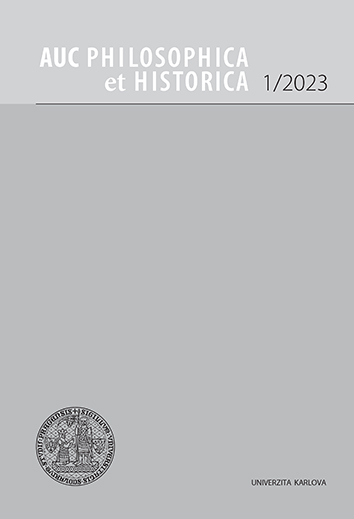AUC Philosophica et Historica je víceoborový akademický časopis zaměřený na humanitní a společenskovědné obory (filozofie, psychologie, pedagogika, sociologie, obecné, české a hospodářské dějiny, pomocné vědy historické a archivnictví, etnologie).
Časopis je indexován v databázích CEEOL, DOAJ a EBSCO.
AUC PHILOSOPHICA ET HISTORICA, Vol 2006 No 1 (2006), 65–78
Společnost práce a „šťastní nezaměstnaní“
[The Work Society and the "Happy Unemployed"]
Ondřej Svatoň
DOI: https://doi.org/10.14712/24647055.2018.182
zveřejněno: 18. 01. 2018
Abstract
Wage labour is being eroded by the development of new technologies and is losing the significance that it had earlier in the "work society". Technological unemployment does not simply mean the replacement of human labour, but is also caused by the development of highly automated production procedures and the growth in products that can be made only by modern technologies and not by hand. The diminution in the proportion of routine human wage work in the production of goods and now even in the provision of services cannot be conceptualised within the explanatory frameworks provided by economic concepts of a social order founded on the principle of rationality of production and consumption. In the current concept of production the traditional notion of the principle of "deserving" is starting to be challenged – or at least the notion of what "deserving" means is being interpreted in new ways in current developed society. Especially in German sociology, ideas are appearing on the need to secure basic material security for people regardless of "productive" labour performed. Changes in the perception of productive work are also manifest in the definition of wealth, which is today conceived in different terms than in agricultural and traditional industrial societies.
